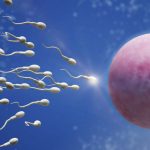Why Some Men Respond Aggressively When ‘Manhood’ is Questioned
NODE SMITH, ND
When their manhood is threatened, some men respond aggressively, but not all. New research from Duke University suggests who may be most triggered by such threats — younger men whose sense of masculinity depends heavily on other people’s opinions.
“Our results suggest that the more social pressure a man feels to be masculine, the more aggressive he may be,” said Adam Stanaland, a Ph.D. candidate in psychology and public policy at Duke and the study’s lead author.
“When those men feel they are not living up to strict gender norms, they may feel the need to act aggressively to prove their manhood — to ‘be a man’.”
The pair of studies considered 195 undergraduate students and a random pool of 391 men ages 18 to 56.
Study participants were asked a series of questions about “gender knowledge.” For men, these included questions on such stereotypical topics such as sports, auto mechanics and home repair. After answering, participants were randomly told their score was either higher or lower than that of an average person of their gender.
To simulate real-world threats to manhood, men who received a low score were also told they were “less manly than the average man.”
After receiving their quiz scores, study participants were asked to complete a series of word fragments by adding missing letters, in order to reveal their state of mind. The results were striking, revealing aggressive thoughts among certain men but not others.
Men whose sense of masculinity came from within seemed unruffled by receiving a low score. It was a different story for men with a more fragile sense of masculinity, whose feelings of masculinity relied on others. That group included men who said they behaved “like a man” due to social pressures such as the desire to fit in, be liked or get dates.
Men with a more fragile sense of masculinity responded to the word fragments by creating words with violent associations rather than neutral meanings. For instance, when provided with the letters “ki” and asked to complete the word, they wrote “kill” rather than, say, “kiss.” When given the letters “blo,” they typed “blood” instead of a word such as “blow” or “bloom.”
Those aggressive responses were strongest among the youngest study participants, men between 18 and 29 years old. The response was milder among middle-aged men between ages 30 and 37, and milder still among the oldest group of participants, men ages 38 years old and older.
“It’s clear that younger men are more sensitive to threats against their masculinity,” Stanaland said.
“In those years, as men attempt to find or prove their place in society, their masculine identity may be more fragile. In many places, this means that younger men are hit constantly with threats to their manhood. They have to prove their manhood every day of their lives.”
Female students did not display a similar aggressive response when their gender was threatened.
Men’s aggressive responses didn’t end with the study questionnaire, the researchers noted. The study designers received violent threats from some men who received low scores — further evidence that the study hit a nerve.
Stanaland said he hopes to delve further into the forces that shape men’s aggression.
“Men report aggressive behavior in all sorts of domains,” Stanaland said. “Some of them are trying to prove their own manhood by being aggressive.
“Men’s violence, terrorism, violence against women, political aggression — fragile masculinity may explain many of these behaviors. It’s in everyone’s interest to understand this phenomenon better.”
1. Adam Stanaland, Sarah Gaither. “Be a Man”: The Role of Social Pressure in Eliciting Men’s Aggressive Cognition. Personality and Social Psychology Bulletin, 2021; 014616722098429 DOI: 10.1177/0146167220984298

Node Smith, ND, is a naturopathic physician in Humboldt, Saskatchewan and associate editor and continuing education director for NDNR. His mission is serving relationships that support the process of transformation, and that ultimately lead to healthier people, businesses and communities. His primary therapeutic tools include counselling, homeopathy, diet and the use of cold water combined with exercise. Node considers health to be a reflection of the relationships a person or a business has with themselves, with God and with those around them. In order to cure disease and to heal, these relationships must be specifically considered. Node has worked intimately with many groups and organizations within the naturopathic profession, and helped found the non-profit, Association for Naturopathic Revitalization (ANR), which works to promote and facilitate experiential education in vitalism.










